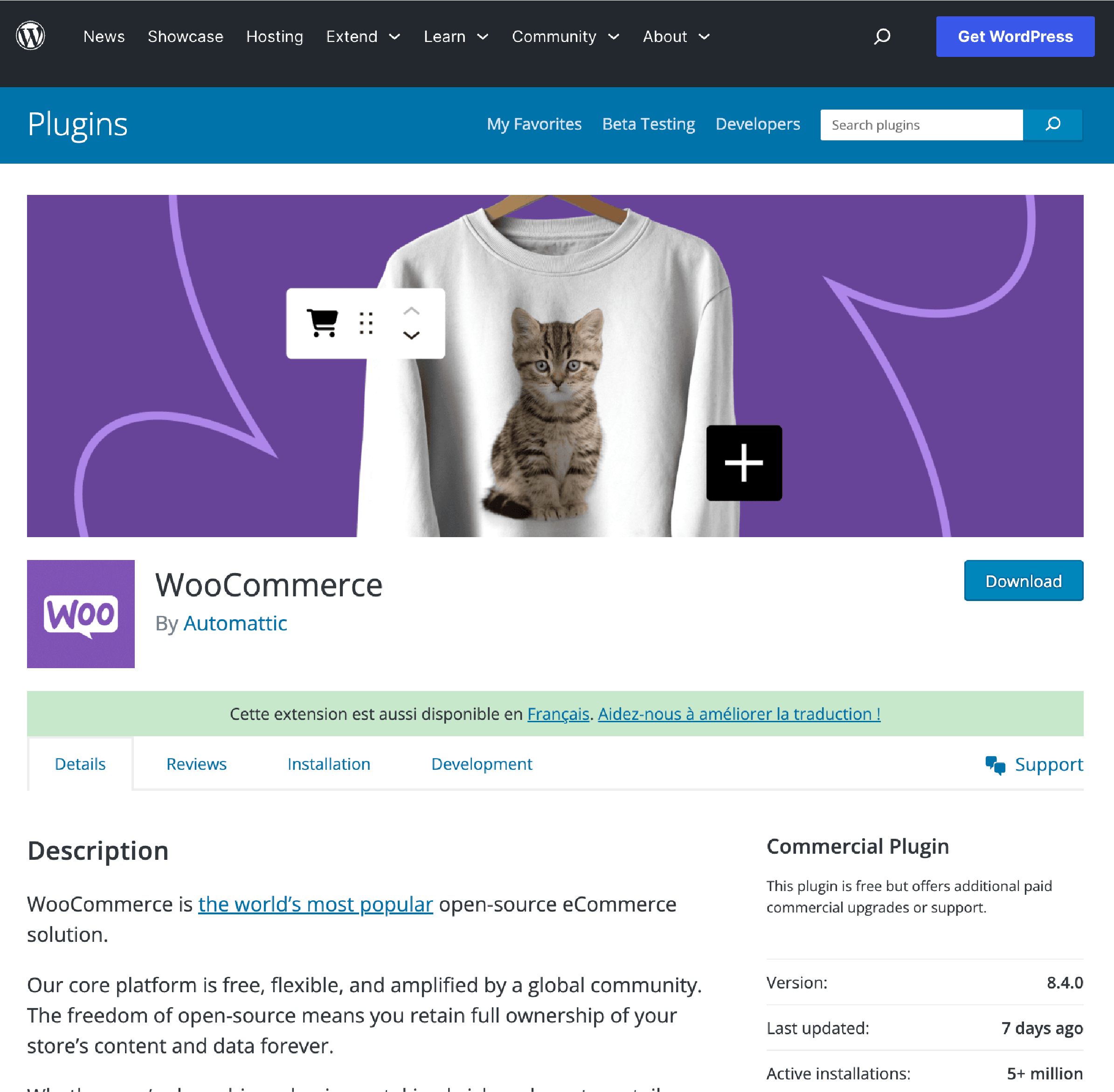
Magento vs WooCommerce: Best Ecommerce Platform?
Magento and WooCommerce are two powerful and widely used e-commerce platforms. Exploring their respective features, performance, security, pricing, and user-friendliness is essential to make an informed choice between them. This article will provide a detailed comparison of WooCommerce and Magento, highlighting their strengths and weaknesses. It will ultimately aid you in selecting the ideal platform for your business.
Key Takeaways
-
Discover the differences between Magento and WooCommerce to make an informed choice for your ecommerce platform.
-
Explore the varied functionalities and extensive extensions available in Magento, ideal for businesses with technical expertise aiming for comprehensive customization.
-
Learn how WooCommerce caters well to users familiar with WordPress, offering a rich library of plugins and themes.
-
Discover the key factors influencing migrating between these platforms, including functionalities, server performance, and market positioning considerations.
What is Magento?

Magento, also known as Adobe Commerce since its acquisition by Adobe in 2018, is a specialized Content Management System (CMS). It is designed exclusively for ecommerce purposes. It is a reliable choice for those with technical proficiency seeking to develop extensive and sophisticated ecommerce projects.
Magento offers several editions, including a free, open-source version, which is quite powerful, and two premium options (Adobe Commerce Cloud and Managed Services) tailored for large enterprises. Over 170,000 websites utilize one of these Magento versions.
Note: This article will primarily compare Magento Open Source with WooCommerce.
Some notable features of Magento include:
- Support for an unlimited number of products
- A wide array of free extensions
- API integration capabilities
- Custom theming and layout options
- User-friendly admin interfaces and product creation tools.
What is WooCommerce?

WooCommerce, introduced in 2011, is an open-source plugin that operates within the WordPress framework. It currently supports more than 28.19% of all online stores.
WooCommerce stands out for its user-friendliness, featuring a swift and uncomplicated setup that enables the creation of an online store in mere minutes. It also offers a rich selection of extensions to augment its built-in capabilities.
Key features of WooCommerce include:
- Support for an unlimited product range
- Extensive library of extensions
- Availability of both free and premium themes
- Streamlined and prompt setup process
- Inclusion of built-in security measures
- Numerous payment processor options
- Comprehensive documentation for assistance.
Magento vs. WooCommerce: Comparison Features
1. Pricing

Magento and WooCommerce are both open-source platforms, allowing you to download and use their core code freely.
Magento: Magento offers three editions:
- Magento Open Source – Installation is free, but you must cover hosting expenses.
- Magento Commerce – It Includes Magento Pricing starting at $22,000 annually.
- Magento Commerce Cloud – Starting at $40,000 annually, including hosting.
WooCommerce:
WooCommerce, on the other hand, is accessible for download and setup on any chosen server. However, it's worth noting that premium extensions for WooCommerce can be costly and may involve annual subscriptions.
Your web hosting expenses depend on your business size and your provider's hosting packages. To establish a competitive online store, you may also need to invest in paid extensions and plugins, with pricing varying depending on your specific requirements.
2. Payment Gateways & Fees

Magento: Magento offers payment gateways, including PayPal, Stripe, Braintree, Authorize.Net, and Amazon Pay. The transaction fee structure is consistent across its editions:
- Magento Open Source: 2.9% + $0.30 per transaction
- Magento Commerce: 2.9% + $0.30 per transaction
- Magento Commerce Cloud: 2.9% + $0.30 per transaction
WooCommerce: WooCommerce has built-in support for payment methods such as PayPal, Stripe, checks, offline and bank transfers, and cash. It also offers extensions for expanding payment options, including Amazon Pay, Square, Google Pay, Alipay, and more.
These extensions generally entail a 2.9% + $0.30 transaction fee, with Square offering a more economical rate of 2.65% + $0.30 per transaction. Apple Pay and Alibaba are available for free use.
3. Design Features and Extensibility

Magento: Magento has many features, including multi-language support, multi-store capabilities, and intricate configurable product options. Designing on Magento allows for creating a fully Magento-customized theme from the ground up. However, this customization often requires professional coding expertise. Magento offers a substantial selection of extensions, including free and premium options.
Note: Premium add-ons in Magento tend to be relatively more expensive, but they offer enhanced capabilities due to their complexity.
WooCommerce: While WooCommerce may possess fewer built-in features, it compensates with extensive extensibility through plugins, themes, and add-ons. The WooCommerce Marketplace and the WordPress Plugin Directory offer thousands of extensions in both free and premium versions.
While pre-made themes are abundant for WooCommerce, the primary customization route involves modifying specific sections using a page builder.
4. Ease-of-use

Magento: Magento may need to be more beginner-friendly, but its extensive documentation can help users navigate its complexities. The platform caters to thousands of users seeking rapid scalability, provided they invest the time to master it. Installation requires command-line proficiency and a server setup that aligns wwith Magento's system requirements.
WooCommerce: WooCommerce is a suitable choice for users without prior ecommerce experience, especially if they are familiar with WordPress. WordPress users will appreciate WooCommerce's comprehensive documentation and abundant online tutorials. Adding WooCommerce to your website is straightforward – navigate to Plugins > Add New, and the platform will guide you through a setup wizard.
The initial setup process is user-friendly, with increased complexity only arising when pursuing customizations or integrating third-party elements.
5. Marketing and SEO

Magento: Magento offers built-in features like meta tag optimization, a robots.txt file for website indexing control, customized slugs, XML sitemaps listing website URLs, and canonical tags for products.
However, advanced Magento marketing tools are not included in the Magento Community version but are available in the Enterprise version. Users can access various add-ons to optimize their site and integrate marketing tools like Google Analytics.
WooCommerce:
WooCommerce is based on a CMS originally designed for blogging, providing inherent features and functionality for content marketing, including publishing posts. It is constructed using SEO-optimized code.
Users can also increase its capabilities with numerous marketing and SEO plugins, such as Yoast SEO, to further optimize content.
6. Customer Support

Magento: Dedicated email, phone, or ticketing system support is exclusive to Magento Commerce plan subscribers. Complex issues may require developer assistance. However, Magento has fostered a community with over 300,000 members, offering peer-to-peer support.
The Magento Forum serves as a resource for addressing common ecommerce issues. Users can submit queries to the forum for community responses if a solution is unavailable.
WooCommerce:
WooCommerce provides two primary avenues for customer support:
- Contacting their help desk via live chat or email.
- Consulting their FAQs and documentation.
Users can engage with WooCommerce's "happiness engineers" through the help desk for more reliable assistance. These engineers can address technical problems, including login and system-related issues.
7. Security

Magento: Magento security provides continuous updates to mitigate potential threats, including information breaches, data leaks, malware attacks, and unauthorized transactions.
Key security measures include:
- Utilization of the TLS protocol, specifically TLS 1.3, for web communication encryption.
- Implementation of SSL certificates to establish encrypted connections and verify website identity.
- Adherence to Level 1 PCI DSS compliance standards, ensuring secure transmission, storage, and processing of credit card data.
- Regular provision of dedicated Magento security patches to address emerging vulnerabilities.
WooCommerce: WooCommerce functions as a plugin rather than a complete e-commerce platform, affecting its security approach. Potential security risks can emerge as it requires manual handling of certain aspects and often relies on third-party vendors.
Common security threats in WooCommerce involve vulnerabilities within plugins, themes, and hosting solutions.
8. Scalability

Magento: Magento offers high scalability, primarily within the Commerce version. The free, open-source platform has limitations in this regard. Magento Enterprise, in particular, can efficiently handle a substantial volume of orders and includes web hosting.
WooCommerce: WooCommerce supports scalability and accommodates unlimited products, much like Magento.
Regardless of your choice between the two platforms, selecting secure ecommerce hosting capable of managing unexpected surges in website traffic is crucial.
9. Speed and Performance

Magento: Magento generally exhibits faster loading times than WooCommerce. However, assessing the speed and performance of Magento vs. WooCommerce can be complex due to various influencing factors. These factors include the Magento hosting plan, the number of installed plugins and extensions, image optimization, and Content Delivery Network (CDN) implementation.
WooCommerce: WooCommerce also offers fast loading times, with some notably swift themes available. Like Magento, the speed and performance of WooCommerce websites can be influenced by hosting choices, the extent of plugin usage, image optimization, and the adoption of a Content Delivery Network (CDN).
10. Product Management

Magento: Magento provides extensive Magento product management features, surpassing WooCommerce in certain aspects. These include support for product reviews, grouped items, wish lists, advanced pricing rules, and product personalization. It does require a steeper learning curve.
WooCommerce: WooCommerce offers a straightforward product management approach, accommodating physical and digital products. Setting up new items is notably uncomplicated, particularly if you are already acquainted with WordPress.
You can also enhance the platform's capabilities by integrating extensions like Product Add-Ons.
11. Bonus Features

Magento: Notable features of Magento include:
-
Inventory Management & Cataloguing: Magento’s inventory management facilitates batch import and export of products, enabling synchronization of warehouse stock with your online store. The platform also accommodates variable tax rates per location, streamlining large-scale operations.
-
International Support: Magento supports various international languages by installing Magento 2 language packs. It allows the configuration of over 20 currency units and provides comprehensive information on registration, purchasing, and shipping.
WooCommerce: Prominent features of WooCommerce include:
-
Themes Galore: WooCommerce offers a diverse collection of themes, with over 1,300 available on Theme Forest alone, providing users with ample design options.
-
Integrated Blogging: WooCommerce uniquely combines e-commerce with built-in blogging, leveraging the widely popular WordPress platform for content publishing.
Comparison Table Highlighting Differences Between Magento and WooCommerce
| Comparison Feature | Magento | WooCommerce |
|---|---|---|
| Pricing | Free (with premium Commerce version available). | Free. |
| Payment Gateways | Built-in options plus extensions (PayPal, Authorize.net, Braintree, etc.). |
Built-in options plus extensions (PayPal, Stripe, etc.). |
| Design Features and Extensibility | Offers multi-language support, multi-store capabilities, and complex product options. It is highly extendable with thousands of Magento Extensions. | It has fewer built-in features but supports thousands of free and cost-effective extensions. |
| Ease of Use | While geared towards developers, its extensive Customization can be advantageous for experienced users aiming for tailored solutions. | Beginner-friendly. |
| Marketing and SEO | Include built-in SEO features like meta tag optimization, robots.txt files, customized slugs, XML sitemaps, and product canonical tags. | Offers built-in blogging functionality and supports SEO plugins. |
| Customer Support | Online support forums; dedicated support available with Commerce package. | Knowledgebase: dedicated support is available for paid extensions. |
| Security | Implements security measures like TLS protocol, PCI DSS compliance, security extensions, and patches. | There are more security risks as it relies on manual handling and third-party vendors. |
| Scalability | Supports an unlimited number of products and is especially robust for large-scale operations. | Supports an unlimited number of products but may require additional optimizations for very large stores. |
| Speed and Performance | Exhibits faster loading times compared to WooCommerce. | Offers fast loading times, with some notably swift themes available. |
| Product Management | Provides advanced management features, including product reviews, grouped items, wish lists, advanced pricing rules, and product personalization. The learning curve may be steeper. | Offers straightforward product management for physical and digital products. |
Pros and Cons of Magento and WooCommerce
1. Magento:
Pros:
- Built for scalability, capable of handling large stores effectively.
- Streamlined checkout process for faster transactions, with guest checkout enabled by default.
- Out-of-the-box integration with Magento payment gateways like PayPal,
Authorize.Net, and Braintree.
Cons:
- Steeper learning curve, primarily designed for developers.
- The Pro and Managed Services editions can be relatively expensive, justified by their target market focus.
2. WooCommerce
Pros:
- Setting up a store is cost-free, excluding web hosting expenses.
- User-friendly, especially for those with WordPress experience.
- Abundant documentation and direct support from the project team.
Cons:
- You may need to familiarize yourself with two platforms if you aren't already using WordPress.
- Expenses associated with premium themes and extensions can add up significantly over time.
FAQs
1. What are the key considerations for businesses when choosing between Magento and WooCommerce?
Business owners should evaluate aspects like their web development knowledge, Magento hosting providers, and desired functionalities. Understanding the importance of security features, integrations, and the communities around each platform is crucial. The overall fit for the ecommerce solution, including prices and flexibility, is important.
2. How do the communities associated with Magento and WooCommerce benefit store owners?
Both platforms provide active communities offering support, guidance, and various extensions or modules. This collective knowledge aids in troubleshooting and expanding functionalities, catering to different ecommerce store owners' needs.
3. What advantages do Magento Marketplace and WooCommerce marketplaces offer retailers?
These marketplaces provide extensive options for extensions or modules, enhancing the appearance and backend functionalities of ecommerce stores. Store owners can access diverse tools to optimize their dashboards, offering everything from SEO extensions to diverse payment processors.
4. What's the importance of flexibility in the interface of ecommerce solutions like Magento and WooCommerce?
Flexibility in the interface allows for ease of use, especially for those lacking extensive web development knowledge. It allows retailers to customize their store's appearance and functionalities without intricate coding.
5. What are the primary reasons for migrating from one ecommerce platform to another?
Reasons for migration between ecommerce platforms include seeking more advanced functionalities, better server performance, or catering to the growth of the business. Understanding the differences in the backend, SEO extensions, and overall market presence is crucial before making such a transition.
6. How do hosting providers play a significant role in the overall performance of an ecommerce store?
Hosting providers impact the store's speed, security, and reliability. The choice between shared, dedicated, or cloud servers significantly influences an ecommerce store's performance, making it imperative for Magento store owners to choose a host that fits their store's demands.
7. Which is better, WooCommerce or Magento?
Both WooCommerce and Magento are excellent platforms, each with its strengths. WooCommerce is well-suited for small ecommerce businesses, providing a cost-effective and user-friendly solution, especially for those familiar with WordPress. Conversely, Magento is scalable and offers streamlined checkout processes, making it an ideal choice for medium to large enterprise e-commerce stores.
Summary
Deciding between Magento vs. WooCommerce depends on your specific needs. Magento is suitable for larger enterprises and offers scalability and a range of editions to fit diverse business needs. WooCommerce's user-friendly setup within WordPress makes it ideal for beginners or those familiar with the platform. This article covered a detailed comparison of Magento and WooCommerce, highlighting their strengths and weaknesses. It included pricing, features, ease of use, scalability, security, and customer support.
Explore Magento server hosting options to ensure optimal performance and reliability for your ecommerce store.



